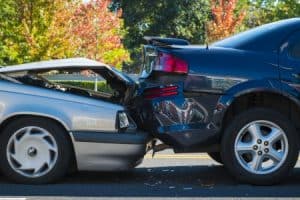If you’ve ever been in an auto accident in California, you understand that answering the question “What happened?” isn’t always easy. It’s the same when a large truck causes an accident; however, the complex dynamics behind trucking accidents make the answer a lot more complicated. As with every accident, there’s an initiating event. A trucker disregards a red light or fails to notice a stop sign. What happens in that single moment often affects the lives of everyone traveling along the same highway.
Large commercial trucks are bigger, heavier, bulkier, and harder to control than a private passenger vehicle. Because they share the road with much smaller cars, pickup trucks, motorcycles, and an occasional pedestrian or bicycle, trucks are often life-threatening as well. Smaller vehicles, cycles, and pedestrians have minimal protection from damages caused by a large truck’s impact depending on the type of truck. Because everyone else on the road is so vulnerable, truck crashes sometimes cause injuries such as traumatic brain injury, spinal cord damage, and other catastrophic conditions. if you or a loved one are trying to recover from an auto accident then contact the experienced truck accident attorneys at Gomez Trial Attorneys.
“Heavy” Large Trucks Cause Fatal Crashes
Large trucks cause significant damage because they have a minimum gross vehicle weight rating of 10,000 pounds. As with anything truck-related, the GVWR isn’t a static factor. When a large truck hauls a loaded trailer, the combined GVWR usually far exceeds the 10,000-pound large truck guideline. The National Highway Traffic Safety Administration’s 2017 Traffic Safety Facts show that 80 percent of the trucks involved in fatal accidents were “heavy” large trucks. Heavy trucks have a GVWR of 26,000 pounds or greater. Federal transportation statutes allow a combined tractor/trailer weight of up to 80,000 pounds. When a heavy tractor is hauling a full load, it easily reaches this GVWR.
Heavy large trucks often travel the highways with a tractor and one or more trailers. When a trucker connects his tractor to a customer’s trailer, it’s often fully-loaded with commercial goods for cross-country transport. Some tractors transport car carriers with the added weight of up to a dozen cars. Tractor-connected flatbeds haul heavy equipment, construction materials, prefab homes, and other heavy, oversized loads.
Why Are Truck Crashes so Dangerous?
They Are Massive Vehicles
The sheer size and weight of trucks create a much higher risk of catastrophic accidents. The U.S. Department of Transportation defines a large truck as one weighing more than 10,000 pounds, but they can weigh up to 80,000 pounds. Some are more than 65 feet long. By contrast, the average passenger car weighs approximately 3,000 or 4,000 pounds and is usually 12 to 18 feet long. There is also a substantial difference in height between a truck and a car. This sometimes results in an underride crash, a horrifying accident in which a car goes under a truck.
Maneuverability
Because large trucks are so long and heavy, they are very difficult to maneuver. A big truck requires much more space than a car to complete turns or other maneuvers. It may be unable to swerve quickly when needed. If the truck is hauling a trailer, a sudden stop can cause the vehicle to jackknife, which is dangerous for the truck driver and others in his or her path.
Stopping Distance
Naturally, the bigger the vehicle is, the harder it is to stop once it is in motion. Therefore, if the car in front brakes suddenly or there is an obstacle in the road, the truck needs more space to avoid an accident. A car traveling at 65 miles per hour needs over 300 feet to stop, but a large truck needs over 520 feet.
Common Accident Causes
When a trucker is operating a vehicle, his employer, customers, and the people in surrounding traffic expect him to drive carefully and act prudently. Truckers are highly-trained and regulated. By the time they earn the right to drive a 10,000-pound plus truck, they should understand what’s required of them.
Truckers study and participate in hands-on training. To qualify for a commercial driver’s license, they must learn safety issues, traffic laws, and driving skills. They learn the dangers of driving a heavy truck and the potential for injuring other drivers with whom they share the road. Despite their extensive training, some truckers still engage in the same risky driving behaviors that contribute to numerous private passenger accidents.
1. Drinking and Driving

The US Department of Transportation publication, Large Truck and Bus Crash Facts 2017, documents the most recent national truck accident statistics for tractor-trailer and large single-unit trucks. The data shows that 3.6 percent of the 4,600 truckers involved in fatal accidents tested positive for blood alcohol concentrations of at least 0.01 percent. An additional 2.5 percent tested at or above 0.08 percent, the BAC for drunk driving in most states.
Truckers understand the hazards of drinking and driving a large truck, yet some of them do it anyway. To qualify for a Commercial Drivers License all truckers undergo training based on FMCSA CDL guidelines. Throughout the manual, the guidelines review the dangers of consuming alcohol before driving. Trucking companies share some of the responsibility when their employees drink and drive. Under Title 49, federal Transportation statutes, Subtitle B, Chapter III, Subchapter B §382, Controlled Substance and Alcohol Use Testing trucking companies must conduct random alcohol testing. They must also take appropriate actions to keep drivers with alcohol problems off the road.
2. Drugging and Driving
The National Transportation Safety Board website explains that instances of drugged-driving are rising faster than driving while intoxicated. Most states have laws that make it illegal to drive while under the influence of legal or illegal drugs. Enforcement is often a problem. As there are so many different types of drugs, there are no standardized tests or guidelines to confirm drug impairment.
3. Speeding
The National Highway Transportation Administration cites speed as a factor in 26 percent of all accidents with fatalities. For truckers, speed isn’t just about complying with the posted limit. Problems occur when truckers drive at inappropriate speeds for weather or traffic conditions. Truckers can’t simply drive at the posted speed. Their speed and their truck’s weight affect their ability to maneuver or stop.
The USDOT’s 2017 large truck crash data shows that truckers weren’t necessarily speeding when they caused a crash. Still, fatality rates were higher at speeds between 40 and 75 miles per hour.
- 14.1 percent of fatal accidents happened while truckers were driving at 40 to 45 miles per hour
- 33.1 percent occurred at speeds of 50 to 55 mph.
- 20.7 percent of fatal crashes occurred at 60 to 65 mph.
- 18.6 percent occurred at 70 to 75 mph.
Stopping distance is often related to a trucker’s speed. The FMCSA resource on truck long stopping distances explains several issues:
- Trucks require more time and distance to stop than private passenger vehicles.
- At highway speeds, a loaded truck requires a stopping distance that’s equal to two football fields.
- Weather issues such as ice, snow, and rain, increase a truck’s stopping distance requirements.
4. Distracted Driving

On September 22, 2019, on Pacheco Pass Highway in Santa Clara County, California, a tractor-trailer driver didn’t notice that the pickup in front of him was slowing to make a left turn. When he struck the pickup in the rear, he pushed it into two oncoming vehicles. The force of the impact ejected the pickup driver, causing fatal injuries. The impact also injured 6 occupants of another involved vehicle.
The NTSB lists distracted driving as a high-priority concern across all modes of transportation. In 2014, the FMCSA and the Hazardous Materials Safety Administration jointly published texting and mobile phone restrictions. The rules prevent truckers from texting or reading texts. They also limit phone use to interactions with one button only.
Distracted driving laws tend to focus on digital devices, but distracted driving accidents involve many other types of behaviors. The NTSB recognizes that “…executing any task other than driving is dangerous and risks a crash…” They see personal electronic devices as a widespread problem. Consequently, they’ve made several recommendations.
- Banning all electronic devices on the roadway
- Strict distracted driving laws and increased enforcement
- Public education about distracted driving
- Manufacturer limits on distracting “infotainment” systems in new vehicles
5. Drowsy Driving
Exhaustion and inadequate rest impair truckers in ways similar to alcohol and drugs. As the NHTSA explains, when a drowsy driver causes an accident, it’s often difficult for law enforcement officials to prove. The NTSB sees fatigue-related accidents as a pervasive transportation problem. They believe drowsy driving is underreported, as it doesn’t leave “telltale signs.” They also explain that sometimes lack of sleep is a matter of sleep quality, personal issues, or medical problems.
When truckers must travel long distances over short periods, working non-stop is often the only way to get the job done. Driving without adequate rest allows truckers to maintain their productivity. To minimize the risk of drowsy driving truck accidents, federal Hours of Service guidelines establish trucker drive-time limits. The rules set maximum on-hour and off-hour periods and establish maximum drive-time limits during a seven or eight-hour period.
Truckers also have issues that are specific to driving a commercial truck.
6. Health Issues
The NTSB finds that obstructive sleep apnea is often a problem with long-haul truckers. Truckers are particularly vulnerable, as many of the more experienced drivers are often older and overweight. When Sleep Apnea goes undiagnosed and untreated, it contributes to inadequate sleep, daytime fatigue, and drowsy driving accidents.
7. Cargo Securement
In Oceanside, California, a trucker hauling an excavator struck a flatbed truck parked on the side of the I-5. He then lost control of his rig and rolled over an embankment. His truck overturned and caught on fire. The trucker sustained only minor injuries. The driver of the stopped vehicle had pulled over to check his load. He sustained no injuries.
Loading and securing cargo is usually someone else’s responsibility. Because it affects his safety, it’s up to a trucker to make sure his load is properly secured. When a shipper improperly loads a trailer or flatbed, their actions sometimes contribute to an accident. When cargo is improperly secured, it sometimes shifts during acceleration, deceleration, turns, and tight maneuvers. As in the above incident, drivers often lose control when their cargo’s shifting weight throws their truck off balance.
A cargo securement problem can cause an overturn, jackknife, or other accidents. To minimize the problem, the FMCSA’s Cargo Securement rules set guidelines for securing solid cargo.
Truck Accident Causation Is More Complicated Than You Think
In their quest to document and analyze truck accidents, national and local safety agencies spend a lot of time looking at post-accident statistics. The NHTSA and other national agencies retrieve data from local law enforcement officers’ reports. Resources such as the Fatality Analysis Reporting System (FARS) document the types of crashes, alcohol or drug involvement, fatalities, and other evidence-based facts. As accident causation is a hot-button issue most agencies leave it to courts, attorneys, and local law enforcement agencies.
A Closer Look at Causation
The Federal Motor Carriers Safety Administration conducted its Truck Crash Causation Study several years ago, but the results remain relevant. The FMCSA took a different approach from other safety agencies. Instead of accumulating and analyzing data, a team personally evaluated truck accidents themselves. Over a 33-month period, they investigated and analyzed the contributing factors for nearly a thousand large truck accidents.
- The team conducted site investigations, collected evidence, and inspected the involved trucks as soon as possible after the accident.
- They reviewed police documentation, hospital records, and witness statements.
- They interviewed drivers and had each truck-driver complete a lengthy interview form.
- Over two-thirds of the accidents studied involved semi-trucks with trailers.
- Seventy-three percent of the accidents involved a tractor-trailer and at least one other vehicle.
- Each accident involved at least one fatality, incapacitating injury, or visible injury.
- Redefining Cause
One of the first things the FMCSA report acknowledged was that “cause” expands beyond what happened during an accident. Some relevant events occur immediately before a crash. These may include a negligent driving decision or a blown tire. Some occur during the event such as a driver panicking and losing control. Other contributing factors take place “…hours, days, or months before the crash.” These may include:
- Driver experience and training
- Vehicle manufacture or design
- Highway conditions
- Traffic control devices
- Weather
Critical Events and Critical Causes
Through site investigation, research, and analysis, the FMCSA study identified crash consistencies. After reviewing the truck crash data, investigators then pinpointed and categorized truck accident causes as having two primary components: “critical events” and “critical causes.”
Critical events. Critical events are the initiating acts that can (but don’t always) lead to a crash. These incidents are often recorded as evidence-based facts. Many large truck accidents occur because of these top critical events:
- Leaving the lane of travel or going off the road
- Losing control due to speed, conditions, cargo shifts, etc.
- Another vehicle in the lane of travel
- Turning at or crossing through an intersection
Critical causes. Accidents occur when one or more human factor contributes to or exacerbates a critical event. The FMCSA noted that these actions took place before and during the accident. These human factors were usually the difference that allowed a critical event to become a catastrophic accident.
- Failure to perform: When a critical event occurs, some truckers don’t take action in time to prevent an accident. Alcohol consumption, illness, or one of the risky driving behaviors listed above sometimes prevents drivers from performing optimally.
- Recognition failure: Distraction, inattention, exhaustion, inexperience, inadequate training, and other issues prevent drivers from recognizing an adverse situation in time to prevent a crash.
- Decision-making failure: When a driver doesn’t correctly judge or recognize an impending emergency, he doesn’t take the appropriate defensive driving actions.
- Inappropriate performance: Performance problems turn critical events into life-threatening accidents. Some drivers simply don’t react while others overreact, panic or lose control.
- Associated factors. The study also listed associated factors that contribute to an accident. These include the issues often associated with accidents such as brake failure, speed, prescription drug use, and others. The FMCSA’s guidelines might also consider the “Common Accident Causes” listed above as associated factors.
Potential Truck Accident Defendants
Truck accidents can be caused by many factors. Sometimes, in addition to the driver, other parties may be liable. To obtain a fair award for your injuries, your legal representatives will try to identify all of the parties who may be responsible. For example, if the driver is employed by a trucking or shipping company, a court may hold that company liable. Common liable parties can include:
Trucking companies
If the truck driver was acting within the course and scope of his or her employment, the trucking company that employed the driver could be liable for the driver’s negligence. However, in many cases, trucking companies are responsible for crashes because of their own actions or failure to act. For instance, a company may be liable if it engaged in:
- Negligent hiring, training, and supervision—Lax or non-existent employee policies may contribute to an accident. Hiring a driver without a proper background check is a violation of federal rules, and possibly the company’s own policy. Driver training and supervision are vitally important. Driving a large, fully-loaded truck is not like riding in your dad’s pick-up when you were a kid. Drivers must be trained to perform pre-trip inspections, coupling and uncoupling, backing, and close quarter maneuvers. Employers must train a driver to safely handle certain rigs or cargo and supervise drivers to ensure compliance with safety rules.
- Failing to carry out proper inspection and maintenance—Some trucking companies try to cut costs by failing to inspect, maintain, or repair their vehicles.
- Pressure drivers to engage in dangerous practices—State and federal safety regulations exist to protect drivers and those with whom they share the road. However, some companies make profits a priority, setting unreasonable delivery deadlines and encouraging drivers to speed or ignore rest breaks.
- Negligent loading of cargo—Improper loading can cause cargo to spill or shift. The weight of the cargo must be correctly distributed and secured. Otherwise, the truck may jackknife or go out of control.
Truck Manufacturers
In some cases, the truck itself, or its components, may contribute to the accident. The manufacturer of the truck or truck parts, as well as the distributor and/or retailer, may face liability if the accident involved malfunctions like:
- Tire tread separation, tire blowouts, or wheel roll-offs
- Brake failure
- Hydraulic system problems
- Defective hitches, couplings, and safety chains
- Defective steering mechanisms
Other Potentially Liable Parties
In some cases, the cause of a truck accident may stem from the negligence of other parties, such as mechanics, shipping brokers, or warehouse operators. The chain of persons responsible for ensuring the safe operation of large trucks is complex, often requiring an intensive investigation to find who or what caused a truck accident.
Truck Accidents and the Law
When someone is injured in a crash involving a commercial freight truck, a personal injury lawsuit is just the beginning. Because the negligent party is a professional truck driver, multiple sources of law may apply. These include traffic laws and civil liability rules, as well as Department of Transportation (DOT) and Federal Motor Carrier Safety Administration (FMCSA) regulations.
Multiple legal issues can arise after a truck accident. For example, your case may involve personal injury, workers’ compensation, employment law, or criminal law. For now, let’s discuss the personal injury aspect. You may hear the word “negligence” frequently, but what is it?
Negligence is defined as a “failure to behave with the level of care that someone of ordinary prudence would have exercised under the same circumstances.” That means someone injured in a commercial truck accident must show that the defendant owed a legal duty to the plaintiff; the defendant breached that duty; the plaintiff was injured; and the defendant’s breach caused the injury. Truck drivers owe a duty to other cars to drive safely; Trucking companies owe a duty to properly screen, hire, and manage their drivers. Failure to do so can result in liability to injured parties.
Injuries
The injuries sustained in a truck accident can be devastating and permanent. The size and weight of large trucks make them very likely to cause severe injuries, and even death, in accidents with other types of motor vehicles. Some of the most common injuries resulting from truck accidents include:
- Back and neck injuries. The force of the impact can cause long term pain from whiplash, disc injuries, and dislocation.
- Head injuries. The accident victim may experience multiple symptoms and cognitive difficulties due to a traumatic brain injury, such as a concussion, swelling, bruising or bleeding in the brain., Head injuries can cause long-term or permanent damage.
- Spinal cord injuries. The spinal cord is an intricate part of your body. If the nerves, bones, or muscles in the spinal cord are damaged, it can lead to temporary or permanent paralysis of one or more parts of the body.
- Broken bones
- Lacerations and bruises
- Internal injuries
- Seat belt injuries
- Wrongful death
Damages
It’s not surprising that individuals involved in truck accidents often sustain serious injuries. When the dust settles, the injured person is usually left with expensive medical bills, lost wages, a future inability to work, and other financial consequences. The court awards damages in an attempt to compensate the injured person for losses and damages caused by the accident.
If you are involved in a truck accident where the truck driver was at fault, you should seek damages. Your recovery in a truck accident case may include payment for income lost through missed work, plus compensation for any loss of earning capacity resulting from the accident. Damages are usually established by using expert witnesses, such as medical experts and economists, to determine lost income and earning capacity. You may recover the following damages:
-
- Present and future medical expenses
- Present and future lost earnings
- Expenses for housekeeping, childcare, and similar services
- Transportation needs
- Other economic losses arising from the accident
- Pain and suffering
- Mental anguish
- Diminished quality of life
- Loss of sexual function
- Physical disfigurement
- Other intangible losses
Should You Contact an Attorney After a Large Truck Crash?

Yes. As you can see, large truck accidents involve more complex factors than you might have realized. When you’re injured, resolving causation, injury, and damage issues require legal expertise. If you or a family member sustained serious injuries in a large truck accident, it’s important to schedule a consultation with a Gomez Trail Attorneys as soon as possible. When you schedule a consultation, you don’t have to pay a fee or make a commitment. You can discuss your case, ask questions, and seek advice about pursuing your injury claim. It can be hard to know what to do after being in a trucking accident, but an attorney can help.







